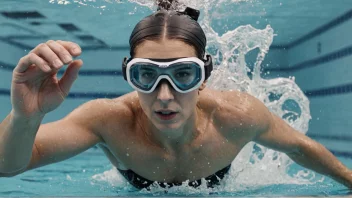Introduction
Water sports are not just about physical prowess; they also require mental clarity and focus. Practicing mindfulness can enhance your experience, improve performance, and ensure greater safety while enjoying activities like surfing, kayaking, and sailing. Here are some of the key benefits and techniques for incorporating mindfulness into your water sports routine.
1. Improved Focus
Mindfulness helps athletes concentrate on the present moment, eliminating distractions. In water sports, this heightened focus can lead to better decision-making and improved performance.
Techniques to Enhance Focus
- Breathing Exercises: Taking deep, controlled breaths can center your mind before and during activity.
- Visualization: Picture yourself successfully navigating challenges in the water.
2. Enhanced Stress Management
Engaging in water sports can be stressful, especially during competitions. Mindfulness allows athletes to manage stress effectively, resulting in a calmer and more enjoyable experience.
Ways to Manage Stress
- Body Scans: Regularly check in with your body to release tension.
- Positive Affirmations: Use phrases that reinforce calmness and confidence.
3. Increased Enjoyment
Mindfulness promotes a deeper connection with the water and surroundings, leading to a more fulfilling experience. This enjoyment can boost overall motivation to engage in water sports.
How to Enhance Enjoyment
- Engage Your Senses: Pay attention to the sounds, smells, and sensations of the water.
- Practice Gratitude: Reflect on what you appreciate about your time on the water.
4. Better Safety Awareness
Being mindful increases your awareness of your surroundings. This is especially important in water sports, where conditions can change rapidly, and safety is paramount.
Tips for Improving Safety Awareness
- Stay Alert: Regularly scan your environment for potential hazards.
- Trust Your Instincts: If something feels off, it’s important to heed that feeling.
5. Greater Resilience
Mindfulness cultivates resilience, allowing athletes to bounce back from setbacks. This is essential in water sports, where challenges and failures are common.
Building Resilience
- Reflect on Experiences: After each outing, consider what went well and what could improve.
- Set Realistic Goals: Focus on achievable targets to maintain motivation even during difficulties.
6. Enhanced Physical Performance
Mindfulness can improve physical performance by optimizing body awareness and movement efficiency. Athletes who practice mindfulness are often better at executing techniques in water sports.
Improving Physical Performance
- Mindful Movement: Be aware of how your body feels during different maneuvers in the water.
- Regular Stretching: Incorporate stretching routines with a focus on mindful engagement.
7. Strengthened Team Dynamics
In team-based water sports, such as rowing or sailing, mindfulness can enhance communication and teamwork. It fosters a supportive environment that encourages collaboration.
Improving Team Dynamics
- Group Mindfulness Sessions: Practice mindfulness together to build stronger connections.
- Effective Communication: Share your thoughts and feelings openly to strengthen team bonds.
Conclusion
Practicing mindfulness in water sports offers numerous benefits, from enhanced focus and stress management to improved safety and team dynamics. By incorporating mindfulness techniques into your routine, you can not only elevate your performance but also enjoy a more enriching experience on the water. Remember, the essence of water sports lies not just in the thrill but also in the harmony with nature and yourself.






